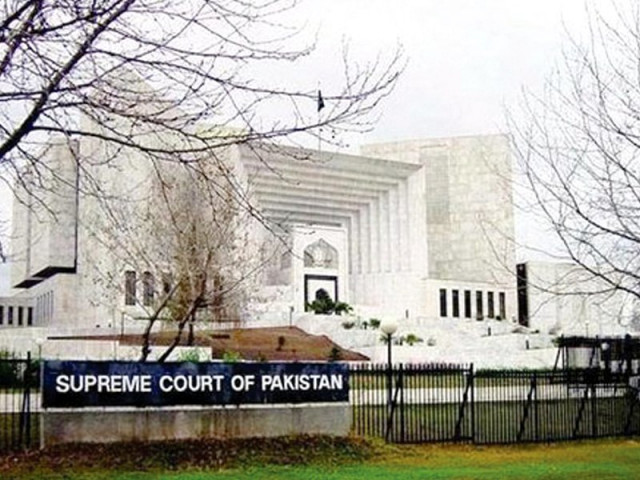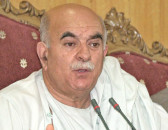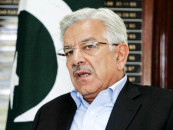Judges’ appointment: President ‘acquiesces to symbolic role’
Justice Iqbal Hameedur Rehman finally elevated to Supreme Court bench.

File photo of Supreme Court of Pakistan. PHOTO: FILE
It appears that the president may have lost yet another judicial battle. President Asif Ali Zardari appears to have accepted his “ceremonial and symbolic” role in the appointment of judges in the superior judiciary.
After much delay, President Zardari finally elevated on Saturday Justice Iqbal Hameedur Rehman, former Islamabad High Court (IHC) chief justice, to a Supreme Court judge (SC).
The president had earlier refrained from issuing a notification endorsing the recommendations of the Judicial Commission on the Appointment of Judges, pointing out certain legal lacunas in the process. His move was subsequently challenged by the Supreme Court.
After hearing the presidential reference at length, the court found the president’s role in the process to be ‘ceremonial’, particularly in light of the 18th and 19th constitutional amendments.
Last week, Chief Justice Iftikhar Muhammad Chaudhry, while addressing a dinner ceremony hosted by the Supreme Court Bar Association, observed that despite legal directives, the government still had not issued the notifications for the appointment of judges.

With the already gargantuan backlog of cases increasing day by day due to a shortage of judges in courts, Justice Chaudhry urged the body to play its role in pressuring the government to issue the notifications.
Finally, Advocate Akram Sheikh filed a contempt of court petition against President Zardari, further reducing the government’s options in the matter.
A press release issued on Saturday from the Presidency stated that the president made the appointment on the advice of Premier Raja Pervaiz Ashraf, as the Parliamentary Committee on Judges’ Appointment had received the nomination from the Judicial Commission.
President Zardari also appointed Justice Muhammad Anwar Khan Kasi as the chief justice of the IHC after his nomination was unanimously approved by the Judicial Commission. The notifications were issued by President Zardari after the Supreme Court cleared the issue of seniority between Justice Kasi and Justice Riaz of the IHC after hearing a presidential reference in this regard.
The president had raised concerns over the nomination of Justice Kasi by the Judicial Commission, saying that Justice Riaz was senior to Justice Kasi – even though both took their oaths on the same day. However, since Justice Riaz is older to Justice Kasi in age, under the relevant rules, he should be treated as senior, the president had maintained.
Secondly, the presidential reference had raised objections over the composition of the judicial commission, which recommended Justice Kasi as senior to Justice Riaz. According to him, since the senior-most high court judge should be a member of the judicial commission, Justice Kasi did not fall into the category.
In January, the Supreme Court had remarked that the president’s role in the appointment of judges was nominal and ceremonial and that he was bound to act on the advice of the prime minister and the recommendations of the judicial commission. Furthermore, the court observed that the seniority of a judge did not give him the right to appoint the chief justice of the respective high court.
Regarding the composition of the judicial commission that met in September last year, the SC said as Justice Riaz was not present in the country, Justice Kasi was allowed to attend the proceedings of the commission as the senior-most judge of the IHC after its chief justice.
After the elevation of Justice Iqbal Rehman to the apex court, the IHC awaits the appointment of judges against three vacant slots. Presently, along with IHC Chief Justice Justice Kasi, Justice Riaz, Justice Shaukat Aziz Siddiqi and Justice Noorul Haq Qureshi are working in the IHC.
Published in The Express Tribune, February 24th, 2013.



















COMMENTS
Comments are moderated and generally will be posted if they are on-topic and not abusive.
For more information, please see our Comments FAQ